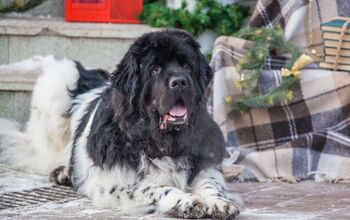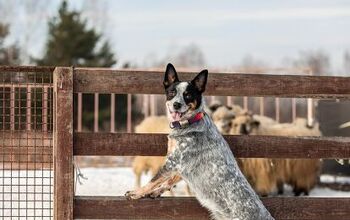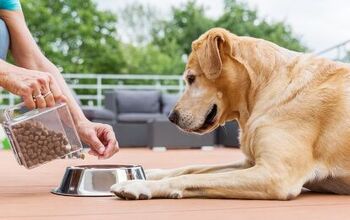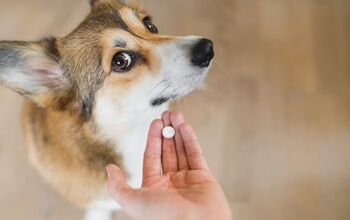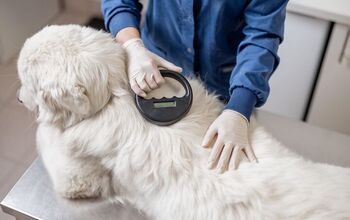DIY Natural Home Remedies For Dogs

When it comes to keeping your dog healthy, providing a nutritious diet and routine veterinary care are the best things you can do. There may come a time however, when your dog suffers from a mild upset stomach, dry skin, or other problems that aren’t serious enough to involve a vet. Rather than turning to commercial products that are laced with chemicals, consider utilizing some natural remedies that you can put together with ingredients you probably already have around the house. Here are a few DIY natural home remedies for dogs.
Chamomile Tea
Chamomile is a natural disinfectant and can be used to treat internal problems including upset stomach, gas, colic and anxiety. Externally, it can also be used for minor irritations like bug bites, eye infections or to disinfect a cut. To use chamomile tea, simply brew a cup of tea and let it cool. Chill the tea in the refrigerator then spray it onto the affected area. When using chamomile tea for eye infections, try placing a warm (not hot) tea bag over the area.
Related: What Are The Benefits Of Coconut Oil For Dogs?
Coconut Oil
You may already be familiar with coconut oil in terms of its health benefits for humans, but it can also be very beneficial for your pets. Coconut oil consists of 90% saturated fat, most of which are medium chain triglycerides (MCTs) – it is this component that provides the most health benefits. Lauric acid, a certain type of MCT, has antiviral, antibacterial and anti-fungal properties. Giving your dog a ¼ teaspoon dose of coconut oil per 10 lbs. body weight can help to improve digestion and to heal digestive disorders such as IBS and colitis – it may also help to reduce bad breath. When applied topically, coconut oil can help to soothe dry skin, treat yeast/fungal infections, disinfect cuts/wounds, and to clear up skin conditions like eczema and flea allergies.
Canned Pumpkin
That can of pumpkin puree sitting in your pantry may be a gold mine of health benefits for your pet, and you didn’t even know it! Because pumpkin is so high in dietary fiber, it can be used to treat digestive issues such as constipation and diarrhea in dogs. Adding a tablespoon or two of pumpkin puree to your dog’s meal will also encourage regular digestion.
Related: The Benefits of Diatomaceous Earth for Dogs
Diatomaceous Earth
A non-toxic substance derived from fossilized aquatic organisms in powder form, diatomaceous earth is a simple and natural way to control internal parasites in your dog. Add one tablespoon of food-grade diatomaceous earth to your dog’s food each day (for puppies and dogs under 55 lbs. use 1 teaspoon) to eliminate roundworms, whipworms, hookworms and pinworms. This substance can also be applied externally to control fleas and ticks. Simply dust your dog’s coat with diatomaceous earth and do the same for his bedding and the surrounding carpeted areas.
Lemon
If you are looking for a natural remedy for fleas or mosquitos, the solution may be as simple as a little lemon water. Lemon is a natural insect repellant and can be used to protect your dog from both fleas and mosquitos. Simply cut a lemon in half and rub it over your dog’s coat or steep cut lemons in hot water then let it cool and spray it over your dog.
These tips are just a few of the many natural home remedies for dogs. Other products such as Brewer’s yeast, aloe vera and even ginger have benefits for dogs and can be used as a natural remedy for a variety of problems. Before you call the vet for a minor issue, consider using a natural remedy to clear it up.

Kate Barrington is the loving owner of two cats (Bagel and Munchkin) and a noisy herd of guinea pigs. Having grown up with golden retrievers, Kate has a great deal of experience with dogs but labels herself a lover of all pets. Having received a Bachelor's degree in English, Kate has combined her love for pets and her passion for writing to create her own freelance writing business, specializing in the pet niche.
More by Kate Barrington











